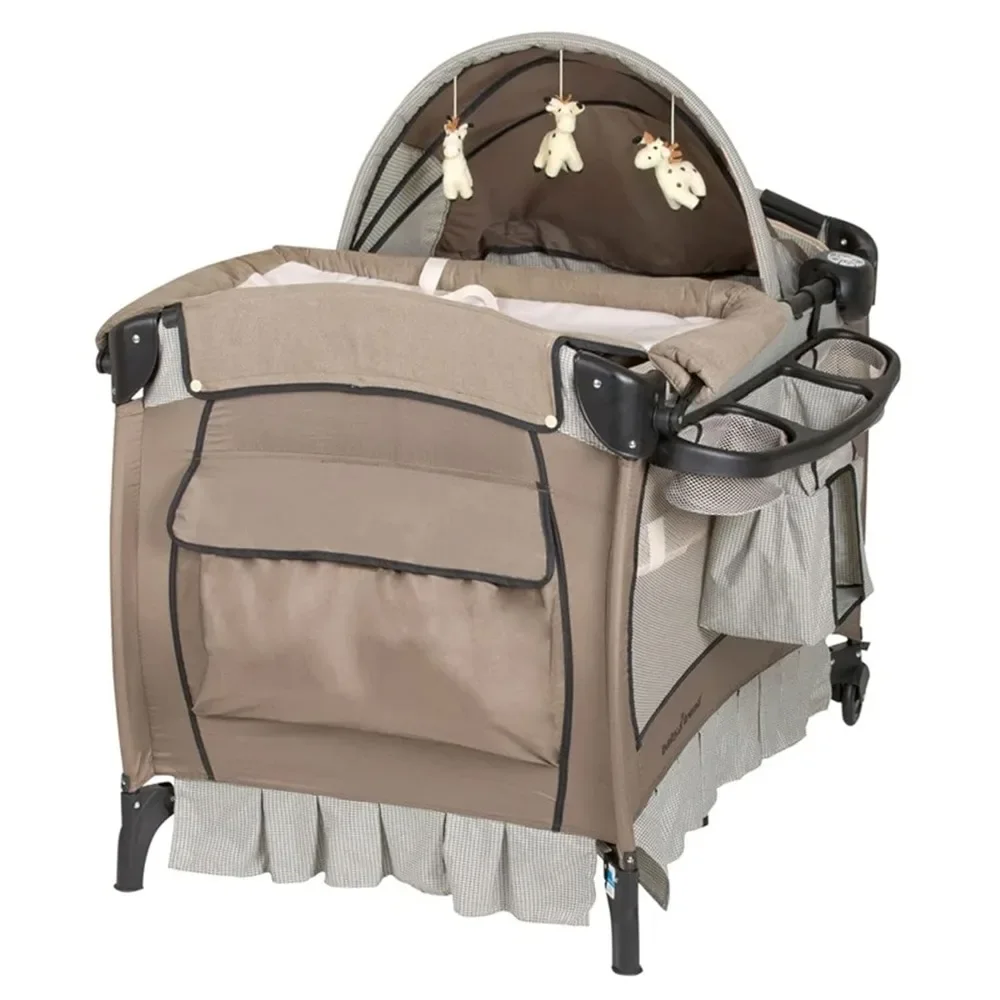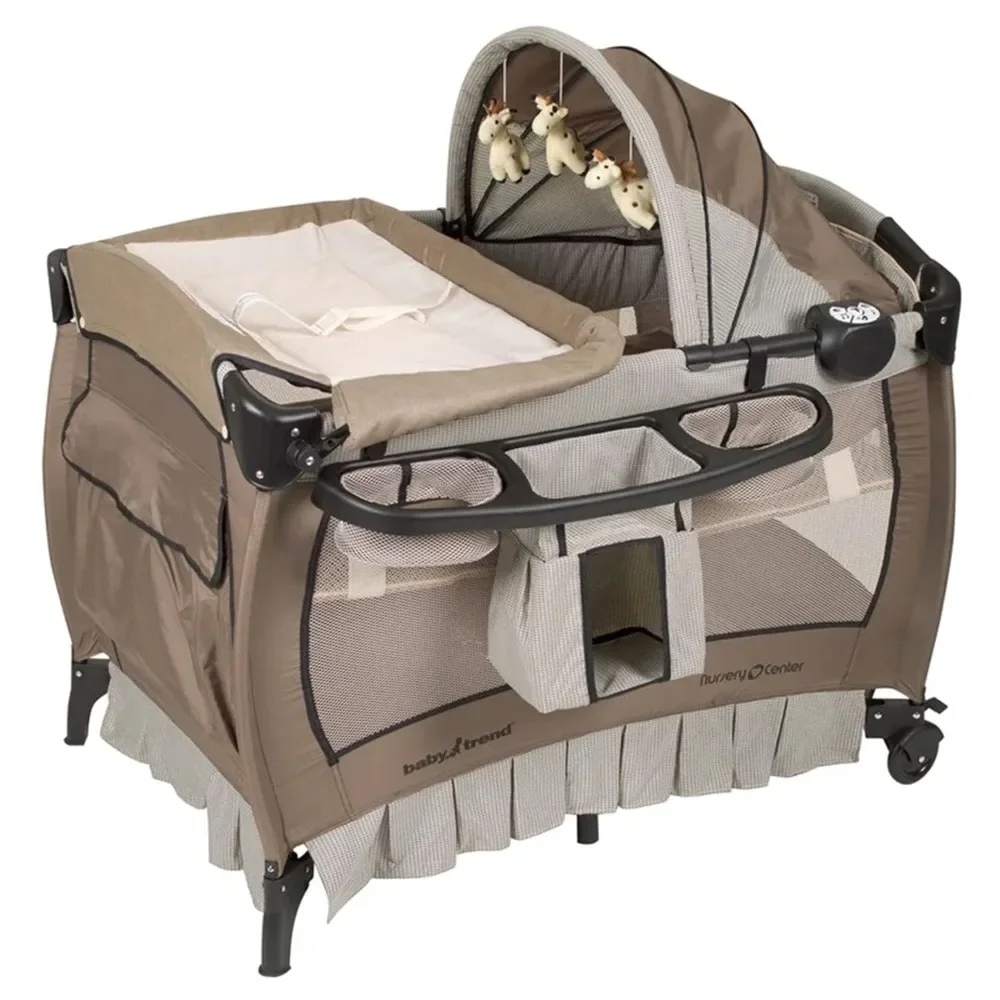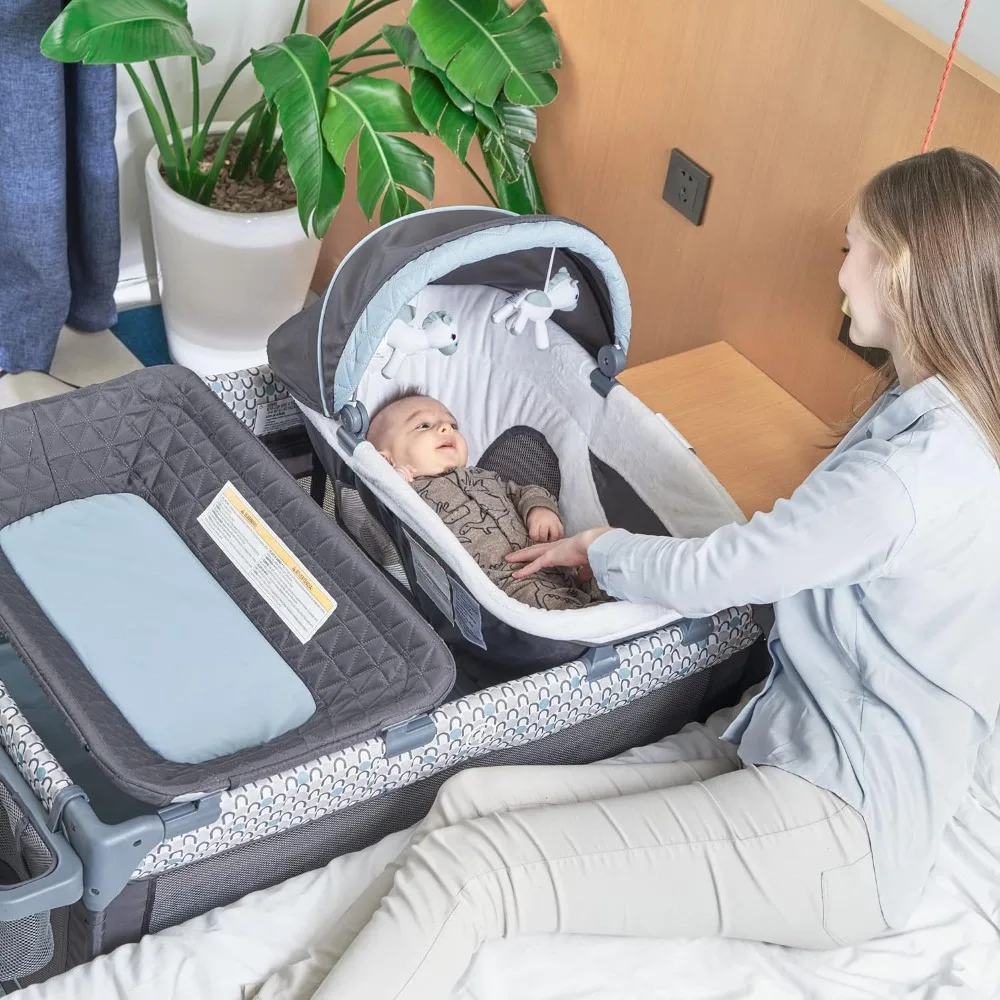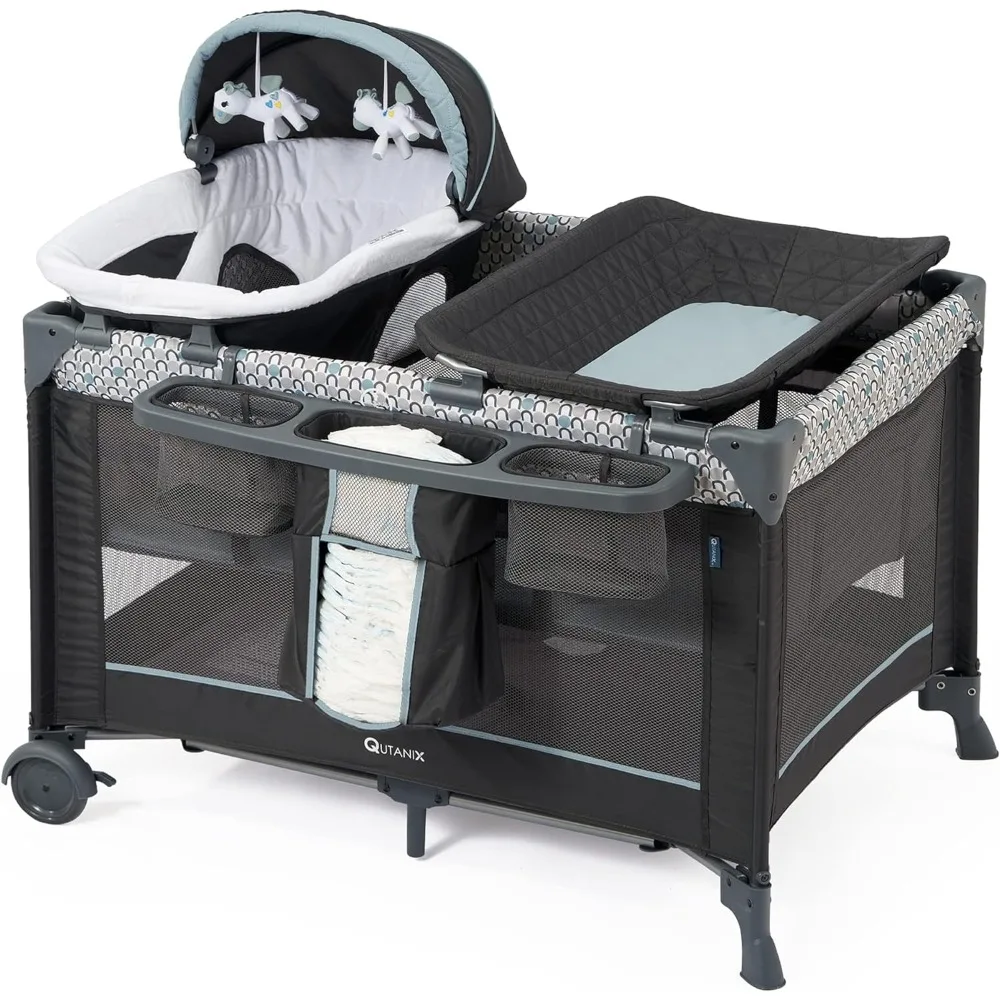Immediate Actions After Your Baby Falls
When your baby falls off the bed, it can be alarming. Here’s what you should do immediately:
- Stay calm. Panicking can scare your baby more.
- Do not move your baby hastily. This might worsen any injuries.
- Check for consciousness. If your baby is not awake, call emergency services.
- Look for bleeding or obvious injuries. Apply gentle pressure to stop any bleeding.
- Observe your baby’s behavior. Look for signs of pain or discomfort.
- Comfort your baby. A familiar voice can be soothing.
- Avoid giving food or drinks. It could cause choking if your baby has a head injury.
Remember, the key is to remain composed and attentive. This will help you better assess your baby’s condition. If there’s any doubt about your baby’s health, seek medical help without delay.
Identifying Serious Injuries: When to Seek Medical Attention
After your baby falls off the bed, be alert for signs of serious injury.
Take immediate action if you notice:
- Unusual crying or moaning, which might signal pain or distress.
- Any loss of consciousness, even briefly.
- Different pupil sizes or non-responsive pupils.
- Signs of confusion or abnormal behavior post-fall.
- Fluid leaking from the ears or nose, or visible head wounds.
- Trouble with balance or movement which could indicate a concussion.
Stay vigilant over the next 24 hours. Look for changes in sleeping or feeding patterns, prolonged irritability, or continuous crying. If any of these signs occur, or if you feel uneasy about your baby’s condition, seek medical care.
A fall can be minor, but it’s better to err on the side of caution. It’s especially true with head injuries in infants, as they might not show immediate symptoms. Professional medical evaluation is crucial to rule out serious issues and provide peace of mind. Timely medical attention can prevent long-term complications.

Common Symptoms Post-Fall: What to Watch For
After a baby falls off the bed, monitor them for common symptoms:
- Examine for any visible bruises or bumps.
- Observe if they cry more than usual, which may hint at discomfort.
- Check if they rub a particular area repeatedly, indicating pain.
- Notice any changes in alertness or sleep patterns.
- Watch for differences in feeding or behavior.
- Look out for vomiting, which can be a concussion sign.
- Check their pupils for size and reaction to light.
Respond quickly if you observe any troubling symptoms. Seek medical help if needed.
At-Home Care: Managing Mild Injuries
After a baby has taken a tumble, many parents can care for mild injuries at home. Here’s how to manage minor bumps and bruises safely:
- Check for small cuts or abrasions. Clean them gently with soap and water.
- If swelling appears, apply a cool compress. Use it for short periods to reduce inflammation.
- Keep your baby comfortable. Offer a favorite toy or story to distract from any pain.
- Watch your child closely. Note any changes in behavior that may require a doctor’s visit.
- Encourage rest. It helps in recovery from the shock or pain of the fall.
- Avoid medications unless advised by a healthcare professional. Especially avoid aspirin due to the risk of Reye’s syndrome.
- Comfort and soothe your baby. Your presence can help calm any anxiety after the incident.
Remember, even if injuries seem minor, be attentive to your child’s condition. If symptoms worsen or you remain concerned, contact your child’s pediatrician. Regular check-ups help monitor their overall health and development. Proper at-home care ensures your baby recovers quickly from simple falls and can get back to exploring the world around them confidently.

Preventative Measures: Tips to Avoid Falls
Ensuring your baby’s safety means taking proactive steps to prevent falls. Here are essential tips to minimize the risk:
- Always supervise your baby, especially on elevated surfaces like beds or changing tables.
- Use safety gates at the top and bottom of stairs to block access.
- Install window guards to prevent falls from windows, and never place furniture near windows that a baby could climb on.
- Keep the crib mattress low and remove mobiles or toys that could serve as climbing aids.
- Don’t leave your baby alone on furniture, and always use safety straps on high chairs and strollers.
- Use non-slip mats in the bath and keep floors clear of toys and clutter to prevent tripping.
- Avoid using baby walkers that can roll down stairs or tip over.
- Place corner protectors on sharp furniture edges to lessen the impact of falls.
By implementing these safety measures, you help to create a safer environment where your baby can explore without the high risk of falls. Regularly check and maintain these precautions to adapt to your growing child’s abilities and ensure ongoing safety.
Understanding Potential Head Injuries from Falls
Falls can lead to a range of head injuries in babies. It is vital to understand these to respond effectively. Here are head injuries your baby might sustain from a fall:
- Concussions: A jolt to the head can cause the brain to shake. Look for vomiting, irritability or sleep issues.
- Skull fractures: A serious impact might crack the skull. Signs include a visible deformity or swelling.
- Brain injuries: Bleeding or bruising in the brain can be serious. Watch for unequal pupils or seizures.
Minor injuries often heal with time and care. Still, babies’ heads are delicate. All head injuries deserve close monitoring.
Remember, symptoms may not show up right away. Stay alert and watch your baby closely after a fall. If you see any unusual behavior or physical changes, seek medical help.
Taking steps to prevent falls is crucial. But knowing how to deal with potential head injuries is equally important. It ensures quick action if accidents happen. Keep emergency numbers handy and know the location of the nearest hospital. Being prepared can make all the difference.
The Importance of Fall-Proofing Your Home
Creating a safe home environment for your baby is essential. Fall-proofing reduces the risk of dangerous tumbles. It also gives you peace of mind as your baby explores. Here’s how you can make your home fall-proof:
- Secure furniture to walls with anchors to prevent tipping.
- Install baby gates before your child begins crawling.
- Keep baby’s play area clear of clutter and small objects.
- Use door knob covers to keep certain rooms off-limits.
- Apply corner guards on sharp furniture edges to lessen injury risks.
- Ensure your baby’s crib sides are always raised and locked.
- Place soft rugs or play mats on hard floors to cushion falls.
Fall-proofing your home is an ongoing process. As your baby grows, your strategies might need updates. Regular home safety checks are important. Adapt your fall-proofing methods as your baby develops new skills. Taking these precautions can significantly reduce the incidence of falls in the home.

When to Head to the Emergency Room: Recognizing Emergency Symptoms
After a baby falls off the bed, it’s crucial to know when urgent medical care is needed. Not every fall results in serious harm, yet some signs warrant immediate action. Here’s what you should look for:
- Solid objects or soft objects? Check which kind they fell onto. This can hint at injury severity.
- Loss of consciousness or not waking up is a serious concern. Call for emergency help right away.
- Uneven pupils or fluid from the ears or nose are warning signs. They need quick medical attention.
- Any trouble breathing is critical. Don’t wait, get to the emergency room.
- Seizures or uncontrolled movements after a fall mean a rush to the hospital is needed.
- If there’s heavy bleeding that you can’t stop, seek urgent care immediately.
These symptoms mean that there may be a serious injury. If they happen, don’t delay. Go quickly to the nearest emergency room or call for an ambulance. Remember, quick thinking can prevent further harm. Always trust your instincts; if something feels off, it’s better to be safe and get help.
